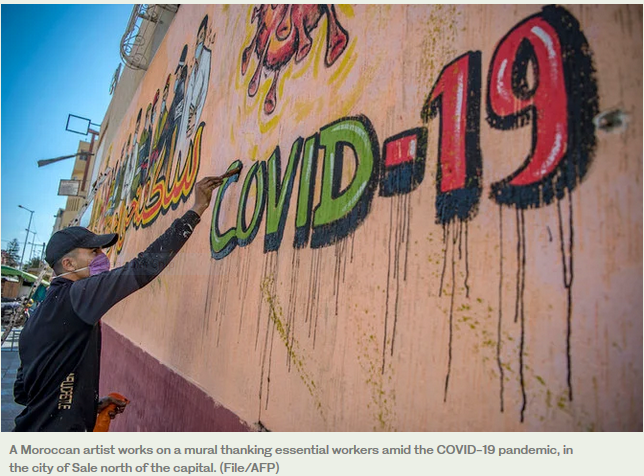
Although the Moroccan government has introduced a number of important measures to tackle the COVID-19 pandemic the country’s public health system is still in a dire shape. It suffers from a series of structural problems including: a lack of qualified personnel; acute inequalities between rural and urban areas; poor training and management; and severe underfunding. Doctors have long complained about sub-standard working conditions, including being forced to carry out surgical operations that, because of the lack of resources, do not comply with medical standards and safety requirements.
If the numbers of those infected with COVID-19 continues to rise, Morocco is going to struggle to cope, and serious questions will be asked about the government’s priorities over recent years. As one member of the Rabat local council observed, ‘perhaps we will think … next time before building a high-speed train line for 23 billion dirhams (US$2.3 billion), or two operas at three billion (US$300 million), while the hospital next door lacks Betadine [antiseptic]’.
Morocco’s healthcare professionals are becoming increasingly angry at the government because of the situation in which it is placing them. There is a serious shortage of Personal Protective Equipment (PPE) as well as a lack of sterilising equipment, which has left healthcare staff vulnerable to infection. There is also a shortage of testing capacity.
Public sector healthcare staff are especially outraged, however, at the fact that their salaries have been cut. As part of its strategy to deal with the pandemic, the government has reduced the salaries of public sector workers. All state employees are required to give up one day’s pay per month for April, May and June to support the emergency Special Fund for the Management and Response to COVID-1 which was established by King Mohammed VI to combat COVID-19 and is financed by donations.
Healthcare workers are furious to have been included in this scheme and are therefore having their wages docked. This is viewed by many in the sector as yet another slap in the face by a government that has long ignored their demands for better pay and conditions. Doctors and other healthcare professionals have repeatedly gone on strike over recent years to demand better wages and conditions but this has had no effect.
Health trade unions are protesting about this latest pay cut and have pointed out that the Organisation Marocaine des Droits Humains (OMDH) — which comprises around 22 NGOs — is demanding salary increases for doctors and nurses.
Relations between healthcare staff and the authorities are therefore at boiling point.
This excerpt is taken from Morocco Focus, our monthly intelligence report on Morocco. Click here to receive a free sample copy.



